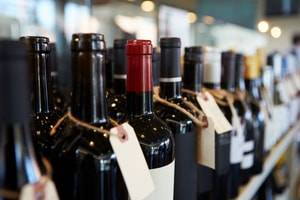Applying for a Wisconsin Liquor License for Your Business
 The sale of alcoholic beverages can be a great way for a store, restaurant, bar, or nightclub to generate revenue. However, before doing so, the establishment must obtain a liquor license. In Wisconsin, the requirements for obtaining this type of government license are very strict. Business owners can avoid being penalized for a license violation by following the correct procedures.
The sale of alcoholic beverages can be a great way for a store, restaurant, bar, or nightclub to generate revenue. However, before doing so, the establishment must obtain a liquor license. In Wisconsin, the requirements for obtaining this type of government license are very strict. Business owners can avoid being penalized for a license violation by following the correct procedures.
Types of Wisconsin Liquor Licenses
In Wisconsin, liquor licenses are issued by local cities, towns, or villages. While different municipalities may have their own specific types of licenses, they generally fall into one of three categories:
- Class “A” licenses allow for the retail sales of alcoholic beverages to be consumed off the business’s premises. These licenses can allow the sale of fermented malt beverages (beer), liquor and wine, or cider beverages.
- Class “B” licenses allow for the sale of alcoholic beverages to be consumed on the business’s premises and, in some cases, to be carried off the premises. Licenses for fermented malt beverages (beer) allow for consumption on or off the premises. Licenses for liquor and wine allow for consumption on the premises and for sealed wine bottles to be carried off the premises. Temporary Class “B” licenses allow for the retail sale of beer or wine at events such as county fairs or town festivals.
- Class “C” licenses allow for the sale of wine to be consumed on the business’s premises. A single bottle of wine may be resealed and carried out if it was served along with a meal.
Requirements for a Liquor License
To obtain a liquor license, a person must be at least 21 years old, he or she must have resided in Wisconsin for at least 90 days, he or she must obtain a seller’s permit from the Wisconsin Department of Revenue, and he or she must also complete a responsible beverage server training course. A license must be obtained from the municipality where the business is located. Depending on the municipality, a person’s criminal record may disqualify him or her from receiving a liquor license.
While a liquor license holder does not need to remain on the premises of his or her business while it is open, a licensed operator must be in charge of the business at all time. To obtain an operator’s license (also known as a bartender’s license), a person must be at least 18 years old, and he or she must complete a responsible beverage server course. Depending on the municipality, there may also be certain criminal record requirements.
Contact a Milwaukee, WI, Liquor License Attorney
If you need help obtaining a liquor license, the attorneys of Gimbel, Reilly, Guerin & Brown, LLP can work with you to make sure you have met your legal requirements and address any regulatory issues that you may encounter. Contact our experienced Milwaukee, WI government license lawyers today at 414-271-1440.
Source:
https://www.revenue.wi.gov/Pages/faqs/ise-atlicns.aspx







